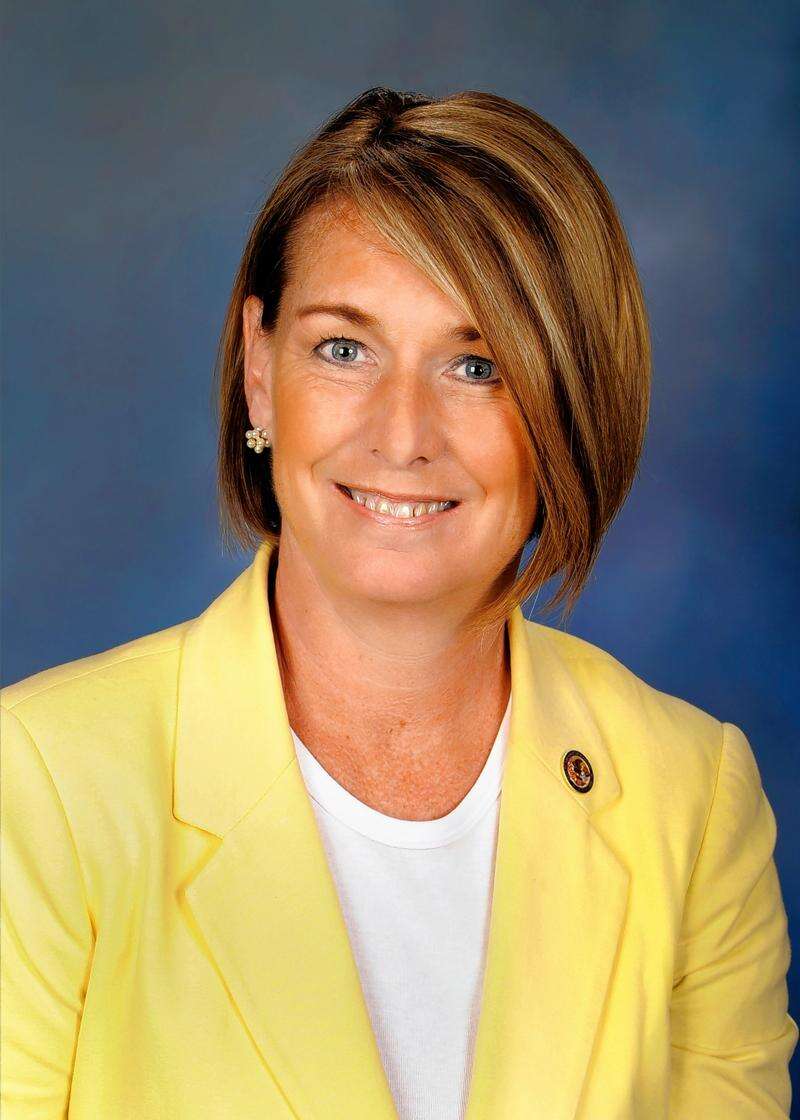Jean Kaczmarek
DuPage County Clerk Jean Kaczmarek can decide how her office spends money, but when it comes to getting the bills paid, the clerk’s office must follow county procedures, a judge ruled Monday.
Judge Bryan Chapman sided with the county and issued a summary judgment — a ruling without a full trial — that orders the clerk’s office to follow county accounting procedures. The ruling takes effect immediately, a spokesman for the DuPage County state’s attorney’s office said.
Monday’s decision marks the latest in a yearslong battle that at times has pitted the Democratic-led county board against the clerk’s office, also led by a Democrat. At issue has been how bills get paid and the internal control Kaczmarek has over her office.
Last September, the DuPage County state’s attorney’s office filed a lawsuit, called a writ of mandamus, claiming the clerk was breaking state law by refusing to indicate from where in her budget a bill should be paid when the line item does not have enough money to cover payment.
The state’s attorney’s office sought a judge’s ruling demanding the clerk follow county accounting procedures that would require budget transfer forms and other documents so bills can get paid.
Deb Conroy
“Today, the judge ruled in favor of fiscal responsibility and transparency,” DuPage County Board Chair Deb Conroy said in a written statement. “Today’s action sends a strong message that DuPage County adheres to the highest standards of government accounting principles to ensure that transactions are conducted in a professional, appropriate, and transparent manner. We will continue to insist these procedures are followed across all DuPage County government offices.”
In his ruling, Chapman said the clerk’s office failed to show the county’s accounting procedures were hindering her office’s autonomy or ability to procure goods or services. He also noted state statute gives the county auditor authority to review bills — including requesting documents related to the bills — and make recommendations on whether the bills should be paid.
Chapman said previous opinions from the Illinois attorney general’s office were not binding and did not address facts specific to the clerk’s case.
Kazcmarek disagreed. She has argued the auditor cannot delay payment of bills that she has approved as long as there is money in her overall budget to cover payment.
“Today’s ruling took the position that for over 40 years, every attorney general’s office, including Kwame Raoul’s, has been wrong about the financial relationship between county boards and independently elected county officials,” she said. “I respectfully disagree with this ruling and continue to agree with decades of attorney general opinions. I will pursue the appropriate next legal steps to fully resolve these fundamental questions, which impact all county officials in the state of Illinois.”
Since the county filed its lawsuit, a judge has approved four agreed orders that outline what bills will get paid and what budget transfers must be made within the clerk’s budget to pay them. As of Monday, the clerk’s office had about $289,000 in unpaid bills due to disputes over documentation or from where money should be pulled.
The majority of the bills — about $230,000 — are the subject of another court matter in which a special prosecutor was assigned in July to investigate bidding practices at the county clerk’s office and determine if any criminal charges should be filed.
Kaczmarek’s attorney has filed a motion for summary judgment related to bidding procedures. A hearing on that motion is set for Oct. 28.

Gerald Steele is the founder of Stonegate Health Rehab. He shares expert insights, recovery tips, and rehab resources to support individuals on their journey to wellness.
